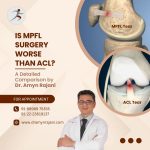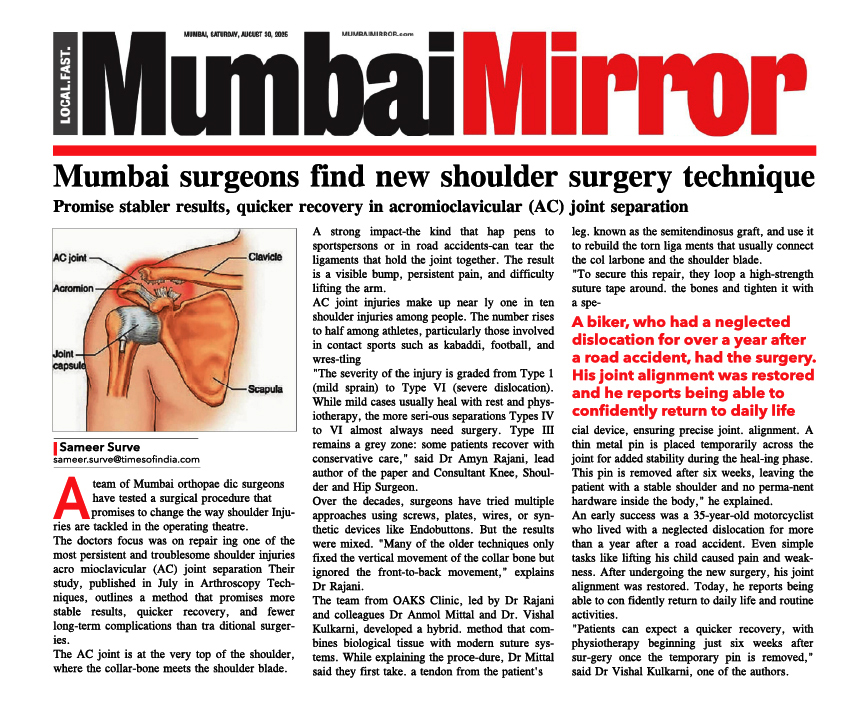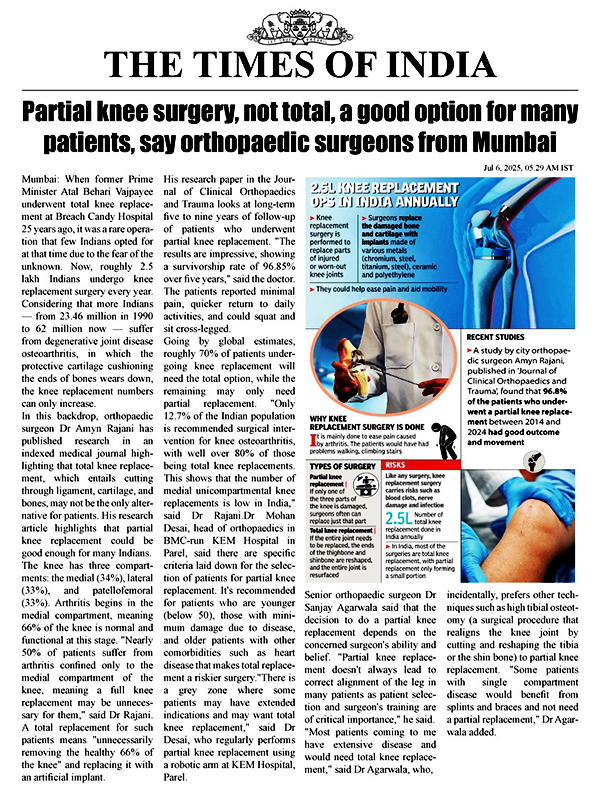Are you experiencing shoulder pain or limited range of motion? If so, you may be suffering from a rotator cuff injury. The rotator cuff is a group of muscles and tendons that surround the shoulder joint, providing stability and enabling a wide range of movements. When the rotator cuff is damaged, everyday tasks become challenging and can greatly impact your quality of life. However, there is hope for restoring shoulder strength and function through rotator cuff surgery. In this article, we will explore the benefits of this procedure and how it can help you regain an active and pain-free lifestyle.
Understanding the Rotator Cuff
Before delving into the benefits of rotator cuff surgery, it's essential to understand the role of the rotator cuff and the types of injuries that can occur. The rotator cuff comprises four muscles: the supraspinatus, infraspinatus, teres minor, and subscapularis. Together, these muscles work in harmony to stabilize the shoulder joint and facilitate movements such as lifting, reaching, and throwing.
Rotator cuff injuries can result from acute trauma, repetitive motions, or degenerative changes over time. Common causes include sports-related activities, accidents, overuse, or the natural aging process. When the rotator cuff is damaged, it can lead to pain, weakness, limited mobility, and a decrease in the overall function of the shoulder.
The Role of Rotator Cuff Surgery
Rotator cuff surgery is a procedure aimed at repairing the damaged tendons and muscles in the rotator cuff. It is typically recommended when non-surgical treatments, such as physical therapy and medication, have failed to provide relief or restore full functionality. The primary goal of surgery is to alleviate pain, improve shoulder strength, and enhance range of motion.
Types of Rotator Cuff Surgery
There are several surgical techniques available for repairing the rotator cuff, and the choice of procedure depends on factors such as the severity and location of the injury. Here are the most common types of rotator cuff surgery:
- Arthroscopic Repair
Arthroscopic repair is a minimally invasive surgical technique that involves making small incisions and using a tiny camera called an arthroscope to guide the repair. This procedure allows for better visualization of the damaged tissues and reduces the recovery time compared to open surgery.
- Open Repair
Open repair involves making a larger incision to directly access the damaged rotator cuff tendons. This technique is often necessary for complex or extensive injuries that cannot be adequately treated arthroscopically. Although open repair may have a longer recovery period, it remains an effective option for certain cases.
- Mini-Open Repair
Mini-open repair combines aspects of both arthroscopic and open repair techniques. It involves using a smaller incision than traditional open repair while still allowing the surgeon to directly access the rotator cuff for repair.
Benefits of Rotator Cuff Surgery
Rotator cuff surgery offers numerous benefits for individuals suffering from shoulder pain and limited function. Let's explore some of the advantages this procedure provides:
- Pain Relief: Rotator cuff surgery can significantly alleviate chronic shoulder pain, allowing you to perform daily activities without discomfort.
- Improved Range of Motion: By repairing the damaged tendons and muscles, surgery can enhance the shoulder's range of motion, enabling you to regain the ability to lift, reach, and rotate the arm effectively.
- Restored Shoulder Strength: Surgery strengthens the rotator cuff, enabling you to rebuild and regain lost muscle strength. This is crucial for returning to sports or physically demanding tasks.
- Enhanced Quality of Life: Regaining shoulder strength and function can improve your overall quality of life. You'll be able to enjoy hobbies, sports, and perform work-related activities without limitations.
- Prevention of Further Damage: Leaving a rotator cuff injury untreated may lead to more severe complications, such as tendon tears or degenerative joint conditions. Surgery helps prevent these long-term issues.
Recovery and Rehabilitation
Following rotator cuff surgery, a comprehensive rehabilitation program is crucial for successful recovery. The duration and intensity of rehabilitation will depend on various factors, including the type of surgery performed and the extent of the injury. Rehabilitation typically involves a combination of physical therapy exercises, pain management, and gradual strengthening exercises.
Frequently Asked Questions (FAQs)
1. How long does it take to recover from rotator cuff surgery?
Recovery times can vary depending on the individual and the extent of the injury. It generally takes several months to achieve a full recovery, with the initial few weeks focused on immobilization and healing.
2. Will I need to wear a sling after surgery?
Yes, a sling is often prescribed following rotator cuff surgery to provide support and immobilize the shoulder during the initial healing phase. The length of time the sling needs to be worn will be determined by your surgeon.
3. Can physical therapy help in the recovery process?
Yes, physical therapy is an integral part of the recovery process after rotator cuff surgery. It helps restore strength, flexibility, and range of motion in the shoulder joint. Your physical therapist will create a personalized rehabilitation program tailored to your needs.
4. Are there any risks or complications associated with rotator cuff surgery?
Like any surgical procedure, rotator cuff surgery carries certain risks, such as infection, bleeding, nerve damage, or stiffness. However, these risks are relatively low, and your surgeon will take appropriate measures to minimize them.
5. Can rotator cuff injuries be prevented?
While not all rotator cuff injuries can be prevented, there are steps you can take to reduce the risk. These include maintaining good posture, practicing proper lifting techniques, and engaging in regular shoulder-strengthening exercises.
Conclusion
If you're experiencing shoulder pain or limited mobility due to a rotator cuff injury, rotator cuff surgery may offer a viable solution. This procedure can provide pain relief, improve range of motion, restore shoulder strength, and enhance your overall quality of life. However, it's important to consult with a qualified orthopedic surgeon to determine if surgery is the right option for you. With the proper surgical technique and a comprehensive rehabilitation program, you can regain shoulder strength and function, allowing you to return to the activities you love.
Transform Your Shoulder Health!
Are you seeking expert care for your shoulder condition? Look no further than Dr. Amyn Rajani, a renowned shoulder specialist in Mumbai. With extensive experience and expertise in the field of orthopedics, Dr. Rajani is dedicated to providing comprehensive shoulder care, including arthroscopic rotator cuff surgery. If you're in need of effective treatment and personalized care for your shoulder concerns, schedule a consultation with Dr. Amyn Rajani today on 91-88989 75355 / 91-22-23619137. Take the first step towards regaining your shoulder strength and function.





